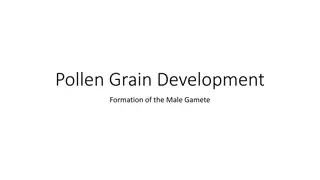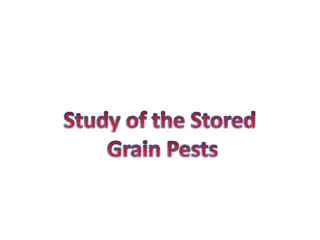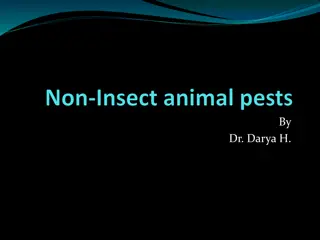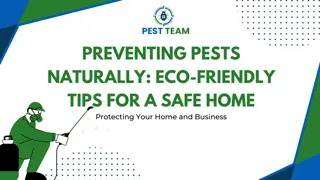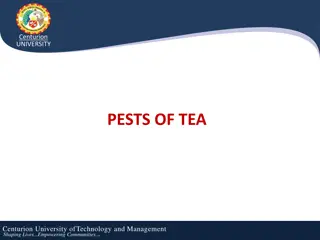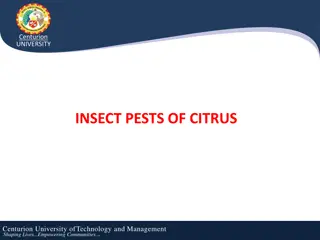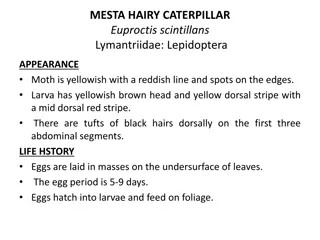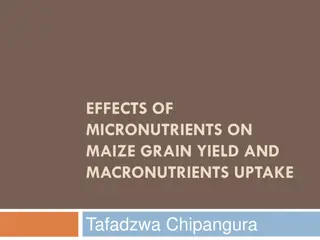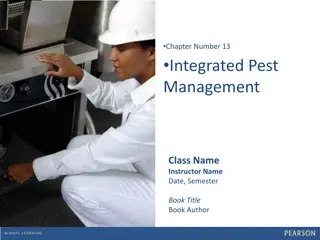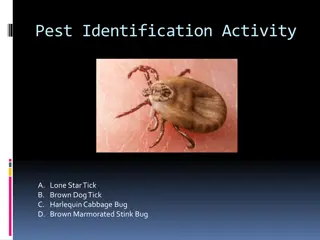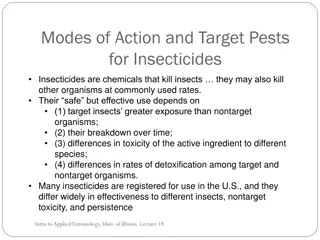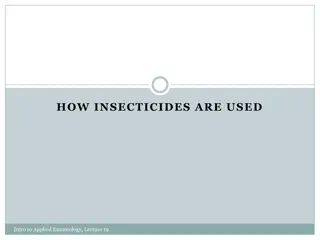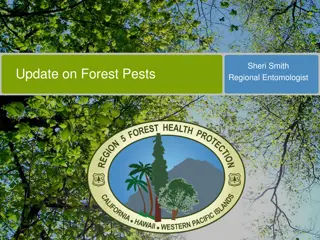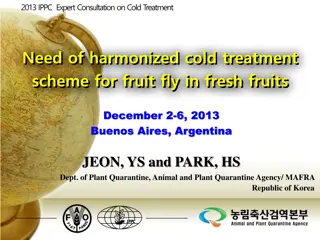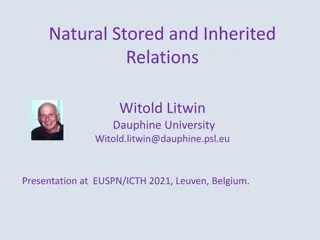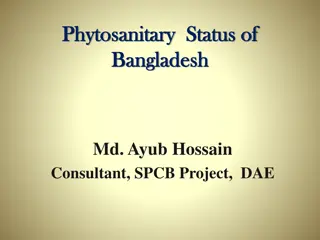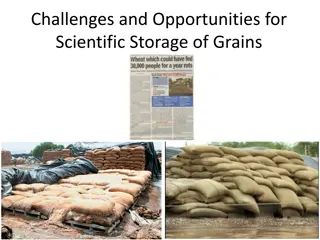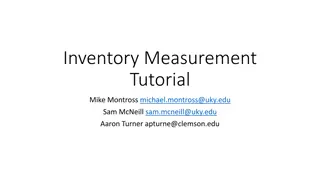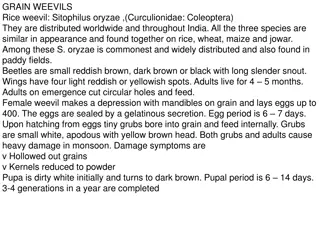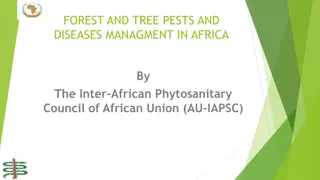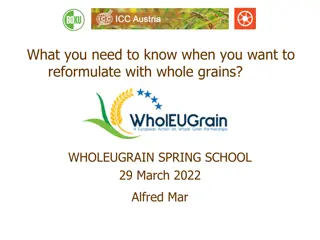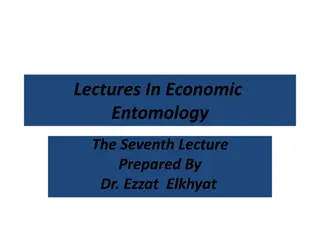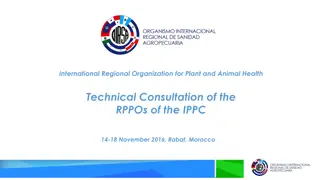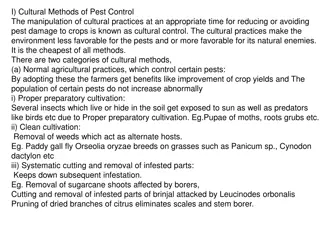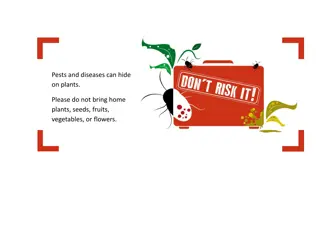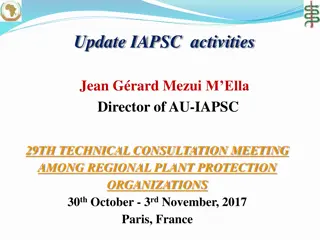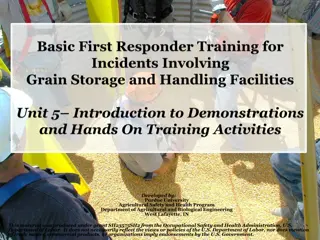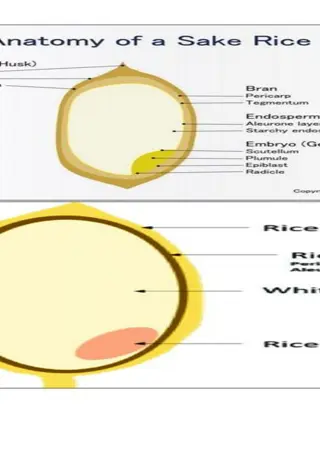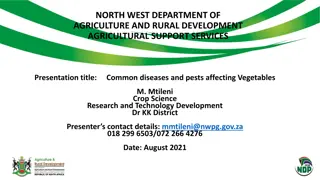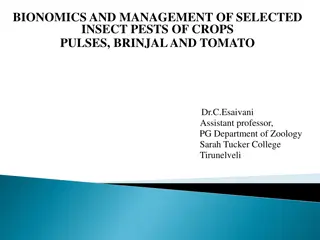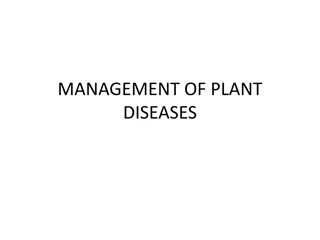Hydrogen Energy Storage Market
Hydrogen is produced through electrolysis of water and the gas is stored in medium or large sized containers according to the requirements. The gas can be converted into energy in combustion engine or in fuel cell. Usually, hydrogen energy is stored in three form; liquid, solid, and gaseous form. To
2 views • 6 slides
Sustainable Rice Production in Pakistan: Challenges and Strategies
Pakistan's economy heavily relies on rice exports, with the country being a significant producer and exporter. However, challenges such as pesticide residues, major insect pests, and diseases threaten rice production. Key parameters for production include cultivation of improved varieties, pest mana
1 views • 42 slides
What Types of Data Can Be Stored on Proximity Smart Cards_ What Types of Data Can Be Stored on Proximity Smart Cards
Unsure what data proximity cards hold? Explore common types of information stored on these contactless cards and their security features.
1 views • 4 slides
Pest Control Experts Stuart
Stuart and Travis Pest Services, LLC stands because the epitome of excellence pest control experts stuart, spearheaded by the dynamic duo, Stuart and Travis. Specializing in residential and industrial pest management, their know-how spans a diverse range of pests. Armed with present day strategies a
3 views • 4 slides
Get Rid of Both Annoying Ads and Pests: Reasonably Priced Pest Control SEO
Synopsis: With our result-driven pest control SEO services, you may get rid of undesired pests and ineffective marketing. We assist you in drawing in actual clients who look for your services online.\n
0 views • 2 slides
Pollen Grain Development
The process of pollen grain development and formation of the male gamete involves crucial stages such as the presence of diploid microspore mother cells in the stamen, meiosis resulting in the formation of four haploid cells and tetrads, mitosis leading to the development of two haploid nuclei in ea
0 views • 6 slides
Overview of Stored Grain Pests
Stored grain pests such as cabinet beetles and darkling beetles pose significant threats to grain products worldwide due to their ability to survive without food for long periods and resistance to insecticides. Infestations can lead to health issues and loss of stored food products. Understanding th
0 views • 5 slides
Understanding Non-Insect Pests in Agriculture
In this lecture, we delve into important non-insect pests affecting agriculture, such as nematodes, mites, snails, slugs, crabs, millipedes, birds, rodents, and more. Learn about their systematic positions, damages they cause, and characteristics. Explore the world of millipedes and centipedes, thei
0 views • 15 slides
Preventing Pests Naturally Eco-Friendly Tips for a Safe Home
\nAt Pest Team, we offer top-notch pest control services across the USA, ensuring your home stays safe and pest-free. Preventing pests naturally is not only eco-friendly but also effective. Keep your home clean and clutter-free, seal cracks and crevi
19 views • 10 slides
Managing Pests of Tea Plants in India
Tea plantations in India face infestations from pests like the tea mosquito bug and thrips, which feed on sap and cause damage to leaves and shoots. Effective management strategies include manual removal, spraying with insecticides like malathion, and monitoring for early detection to protect tea cr
0 views • 13 slides
Insect Pests of Citrus: Identification, Behavior, and Management
Insect pests such as citrus butterfly, fruit-sucking moth, leaf miner, rust mite, and bark-eating caterpillar pose significant threats to citrus plants. These pests can damage citrus seedlings and various fruit varieties. Understanding their appearance, distribution, life cycle, and management techn
4 views • 14 slides
Pest Management Strategies for Mesta Plant Pests in India
Discover effective pest management techniques for common pests, including the Mesta Hairy Caterpillar, Mesta Stem Weevil, and Mealy Bug, that infest malvaceous plants like bhendi and guava in India. Learn about the appearance, life cycle, symptoms, and management strategies to protect your crops.
0 views • 9 slides
Effects of Micronutrients on Maize Grain Yield and Macronutrients Uptake
Micronutrients play a vital role in promoting strong and steady growth in crops like maize, leading to higher yields and improved harvest quality. This study aims to assess the impact of micronutrient supplementation, specifically Cu, Fe, and Zn, on maize grain yield and the uptake of macronutrients
0 views • 15 slides
Integrated Pest Management in Food Service Operations
Integrated Pest Management (IPM) is essential for preventing and controlling pests in food service operations. This approach focuses on denying pests access to the operation, food, and shelter, while working with licensed Pest Control Operators (PCOs) to eliminate any pests that do enter. By impleme
2 views • 16 slides
Pest Identification Activities for Common Pests
Engage in pest identification activities featuring various common pests such as ticks, bugs, mosquitoes, and more. Explore images and descriptions to learn about different pests and enhance your knowledge in pest recognition.
0 views • 26 slides
Overview of Insecticides: Modes of Action, Target Pests, and Types
Insecticides are chemicals used to kill insects, but their effectiveness and safety depend on various factors like target specificity, breakdown over time, and toxicity differences. Different classes of insecticides such as Organochlorines, Organophosphates, Carbamates, Pyrethroids, and Neonicotinoi
0 views • 40 slides
Understanding the Use of Insecticides in Agriculture
This lecture on how insecticides are used in applied entomology covers the application of soil-applied and seed-treatment insecticides for controlling pests in crops, vegetables, fruits, and gardens. It discusses the types of insecticides, their persistence, solubility, and historical issues. Furthe
0 views • 21 slides
Update on Forest Pests Impacting Northern CA National Forests
Regional entomologist Sheri Smith provides insights on the devastating impact of forest pests on Northern CA National Forests, including tree mortality rates, drought conditions, bark beetle attacks, and the vulnerability of trees to various stress factors, with a highlight on the significant tree d
0 views • 29 slides
Harmonized Cold Treatment Scheme for Fruit Fly in Fresh Fruits Expert Consultation
The 2013 IPPC Expert Consultation in Buenos Aires, Argentina discussed the need for a harmonized cold treatment scheme for fruit flies in fresh fruits. The goal was to control regulated pests in international trade and suggest experiments for harmonizing cold treatment protocols. Prohibited articles
0 views • 13 slides
Understanding Stored and Inherited Relations in Relational Databases
Explore the concept of Stored and Inherited Relations (SIR) in relational databases, as discussed by Witold Litwin at Dauphine University. Discover how a typical scheme of a stored relation defines a natural SIR, leading to more efficient query formulations and less procedural querying processes. Le
0 views • 27 slides
Understanding Plant Quarantine and Phytosanitary Measures
Plant quarantine involves efforts to prevent the entry, establishment, or spread of foreign pests through legal restrictions on plant and plant product movement. It is crucial for safeguarding plant health, food production, and ecosystems. Phytosanitary measures aim to ensure the health of plants by
0 views • 33 slides
Challenges and Opportunities in Scientific Storage of Grains
Globally, significant losses in food grains occur due to inadequate storage facilities, highlighting the urgent need for modernization and investment in grain storage infrastructure. Countries like India, USA, Canada, and China face varying challenges in grain storage practices, emphasizing the impo
0 views • 14 slides
Excel Inventory Management Tutorial for Agricultural Grain Storage
Excel Inventory Model for tracking incoming and outgoing grain based on scale weights, estimating quantity stored in bins, and managing inventory uncertainties. Includes detailed instructions for setting up the model, entering bin measurements, and utilizing pivot tables for data analysis.
0 views • 58 slides
Common Grain Pests and Their Characteristics
Grain pests like rice weevils, rice moths, pulse beetles, and flour beetles are a common nuisance causing damage to grains worldwide. These pests infest various grains including rice, wheat, maize, pulses, and flour products, leading to contamination and reduction of grain quality. Understanding the
0 views • 6 slides
Forest and Tree Pests and Diseases Management in Africa
The management of forest pests and diseases in Africa is crucial to safeguard the continent's forests, international trade, and forest products. This presentation provides insights into the occurrence, distribution, economic impacts, and regional cooperation for managing forest pests. Major pests an
0 views • 12 slides
Reformulating with Whole Grains: Key Considerations and Guidelines
Understanding the importance of reformulating with whole grains involves key issues such as defining whole grains, ensuring food safety, maintaining grain quality, and adhering to national regulations. It is essential to follow guidelines on whole grain ingredients, food safety practices, and the de
0 views • 14 slides
Understanding Economic Entomology: A Focus on Pest Management in Horticultural Plants
Explore the world of economic entomology and delve into the study of insects that either benefit or harm humans and their products. Learn about the general definitions of pests, taxonomy of pests, and why insect pests are considered the most important group of pests. Discover the impact of insect pe
0 views • 24 slides
Overview of International Regional Organization for Plant and Animal Health Technical Consultation
The International Regional Organization for Plant and Animal Health (OIRSA) is a legal entity with Member States in Central America and the Caribbean. Its objective is to assist Member States in developing animal and plant health plans and enhancing quarantine services and food safety. OIRSA's funct
0 views • 6 slides
Cultural Methods of Pest Control in Agriculture
Cultural methods of pest control in agriculture involve manipulating cultural practices to reduce or avoid pest damage to crops. These practices create an environment less favorable for pests or more favorable for their natural enemies, ultimately improving crop yields and minimizing pest population
0 views • 14 slides
Beware of Pests and Diseases on Plants - Protect Your Home Garden
Pests and diseases can easily hide on plants, seeds, fruits, vegetables, and flowers, posing a threat to your home garden. Bringing infected plants home can lead to widespread infestations and damage. It's crucial to be vigilant and avoid importing potentially contaminated greenery. Stay informed, i
0 views • 4 slides
Understanding Pest Control and Types of Pesticides
Pest control is crucial to safeguarding health and property by managing pests like rodents, insects, and more. Various pest control methods are utilized to alleviate infestations. Moreover, different types of pesticides, such as insecticides and herbicides, are employed for pest management, each wit
0 views • 13 slides
Update on IAPSC Activities: Technical Consultation Meeting 2017
This update highlights the achievements and initiatives of the International Association for Phytosanitary Capacity Building (IAPSC), focusing on capacity development, strategic planning, and coordination for plant protection in Africa. It discusses the outcomes of the 29th Technical Consultation Me
0 views • 20 slides
All About Hazelnut: Growth, Features, Animals, Pests, Seeds, Reproduction
Hazelnuts, also known as Corylus Americana, thrive in rich, moist soils and can be found near stream sides. They grow up to 8-12 feet, with leaves turning red, orange, and green in fall. Various animals feed on hazelnuts, while pests like the eastern filbert blight pose a threat. The nuts have one o
0 views • 8 slides
Grain Storage and Handling Safety Training Session
This training session, developed by Purdue University, focuses on enhancing familiarity with basic grain storage and handling facilities and implementing emergency grain bin emptying techniques. Participants will engage in hands-on activities such as touring grain storage structures, demonstrating g
0 views • 9 slides
Pest Control Company Jupiter
Travis Pest Services, LLC. gives dependable pest control company Jupiter, ensuring your house or enterprise remains unfastened from unwanted pests. With a dedication to consumer satisfaction, they offer tailored treatments for commonplace pests like
3 views • 4 slides
Understanding the Anatomy of a Rice Grain
The anatomy of a rice grain consists of the hull, pericarp, testa, and bran layers, each serving a unique purpose in protecting the seed and providing essential nutrients. The hull, pericarp, and bran are successively removed during the milling process, impacting the nutritional content of the final
0 views • 12 slides
Common Diseases and Pests Affecting Vegetables in Agriculture
Various diseases and pests pose threats to vegetable crops, causing economic losses. Control strategies involve both chemical and mechanical methods. Common diseases discussed include Clubroot, Downy Mildew, Sclerotinia Stem Rot, and Anthracnose, each with distinctive symptoms and management practic
0 views • 14 slides
Whole Grain Sourdough Bread in Palm Springs: Freshly Baked Goodness
Savor the rich flavor and health benefits of whole grain sourdough bread in Palm Springs. Our bread is baked fresh daily, using high-quality, whole grain ingredients and traditional sourdough fermentation techniques. Perfect for those seeking a nutri
2 views • 9 slides
Bionomics and Management of Insect Pests in Crops: Insights and Strategies
Explore the bionomics and management practices for key insect pests affecting crops like pulses, brinjal, and tomato. Learn about the life cycles, damage caused, and effective control measures for pests such as the greasy cutworm and plume moth.
0 views • 30 slides
Overview of Plant Quarantine and Disease Management
Plant quarantine is a crucial practice that involves regulating the movement of plants and plant products to prevent the spread of pests and diseases. Originating with the first law in France in 1860, plant quarantine now encompasses various methods such as embargoes and inspections to safeguard pla
0 views • 11 slides





